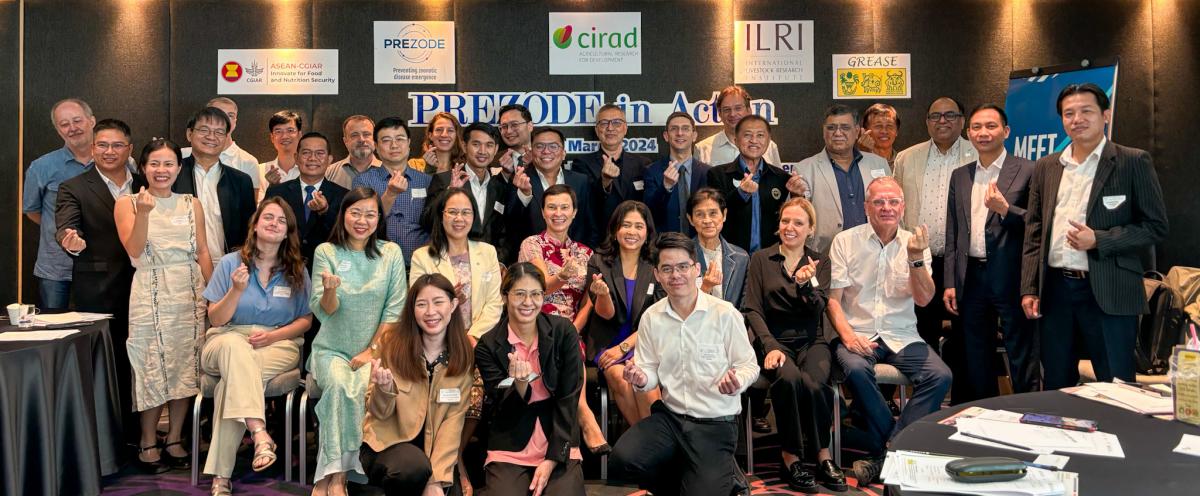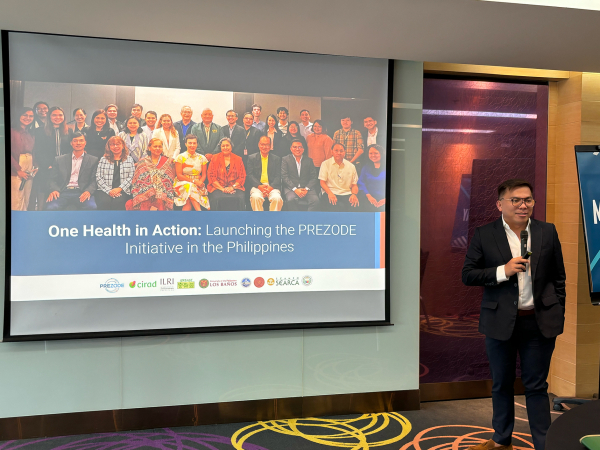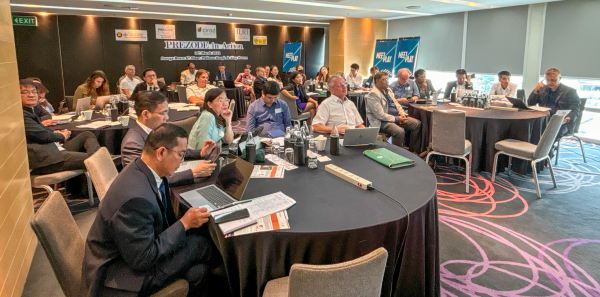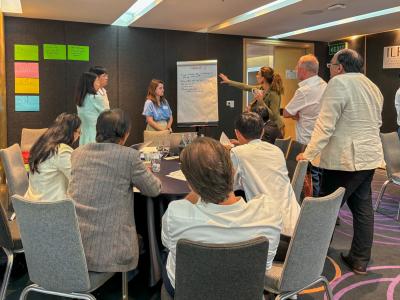- Home
- Worldwide
- Our regional offices
- Continental Southeast Asia
- News : Continental Southeast Asia
- One Health Database
Bangkok Workshop Unveils One Health Database to Combat Zoonotic Diseases

Participants at the regional Workshop on the Prevention of Zoonotic Diseases Initiative (PREZODE) © L. Vo, CIRAD
The Regional Workshop on the Prevention of Zoonotic Diseases Initiative (PREZODE) took place in Bangkok, Thailand, on March 26, 2024. The event convened experts from diverse disciplines, organizations, and networks, such as the World Organisation for Animal Health (WOAH), the Centre for Agriculture and Bioscience International (CABI), the Department of Disease Control from the Thai Ministry of Health (DDC, MoH), and some national One Health University Networks from Vietnam (VOHUN), Laos (LAOHUN), and the Philippines (PHLOHUN), reflecting a broad collaboration across the health, agricultural, and environmental sectors.
Ms. Vu Thi Phuong, Vietnam One Health Platform (OHP) coordinator, described the event: "Today's workshop successfully gathered various international networks and organisations [...] to effectively propose and synthesise recommendations concerning One Health priorities and common challenges faced by countries in the region."
The workshop was jointly organised by CIRAD, the Management of Emerging Risks in Southeast Asia platform in partnership (GREASE), the International Livestock Research Institute (ILRI), and the ASEAN-CGIAR (Association of Southeast Asian Nations - Consultative Group on International Agricultural Research).
PREZODE & PREACTS
In 2021, the COVID-19 pandemic has highlighted the urgent needs to recognize the vital link between biodiversity conservation and public health resilience.
We are facing a number of shared problems related to zoonotic diseases. Southeast Asia is a hot spot for many diseases, requiring cooperation between and among countries.
In response, three French organizations, including CIRAD, the National Institute for Research on Sustainable Development (IRD), and the National Institute for Research in Agriculture, Food and the Environment (INRAE), have launched the PREZODE initiative, a comprehensive international effort to prevent the emergence of infectious diseases with pandemic potential.
With over 235 members from 77 countries, PREZODE strategically targets 'hotspot' regions, including Africa, Southeast Asia, Latin America, and the Caribbean, to support and integrate One Health networks.
To further advance this initiative, the PREZODE in Action in the global South (PREACTS) project, backed by the French Development Agency (AFD), was initiated to foster a hands-on research and development approach by involving researchers, private sector entities, end-users, and policymakers from the inception stage.
The PREACTS project will be implemented in Vietnam from 2025 to 2028 through the three co-chairing ministries of the One Health Partnership framework: the Ministry of Agriculture and Rural Development (MARD), the Ministry of Natural Resources and Environment, and the Ministry of Health.
"[The implementation of PREACTS] will lead to the creation of scalable models that can effectively address core issues and support national and sector-specific tasks."
The One Health database
The workshop opened with speeches from representatives of the PREZODE initiative, the French Embassy, the WHO—Quadripartite, ILRI, and CIRAD. The morning's sessions fostered rich discussions on the One Health framework, with diverse stakeholders sharing insights from their One Health actions in the region.
Key discussions explored how the PREZODE initiative can be linked with others to address One Health priorities in the region and ASEAN context. Exemplifying the co-design approach at the heart of PREZODE, Dr. Flavie Goutard, GREASE platform coordinator and PREZODE focal point for CIRAD, presented an innovative database developed under PREZODE. This innovation aims to map existing One Health activities across the region, as well as the institutions involved in them, for effective knowledge-sharing and collaboration.
At regional and country levels, based on this database, we will invite the different partners from different sectors engaged in One Health to co-design the next project, ensuring that we are filling the gap and not duplicating what already exists in the region.
In the afternoon, a group work session took place to describe where the OH situation will be in 20 years in SEA region, to discuss desirable impacts and outcomes that we would like to reach and what are the obstacles to these changes, setting the stage for future collaborations.



























